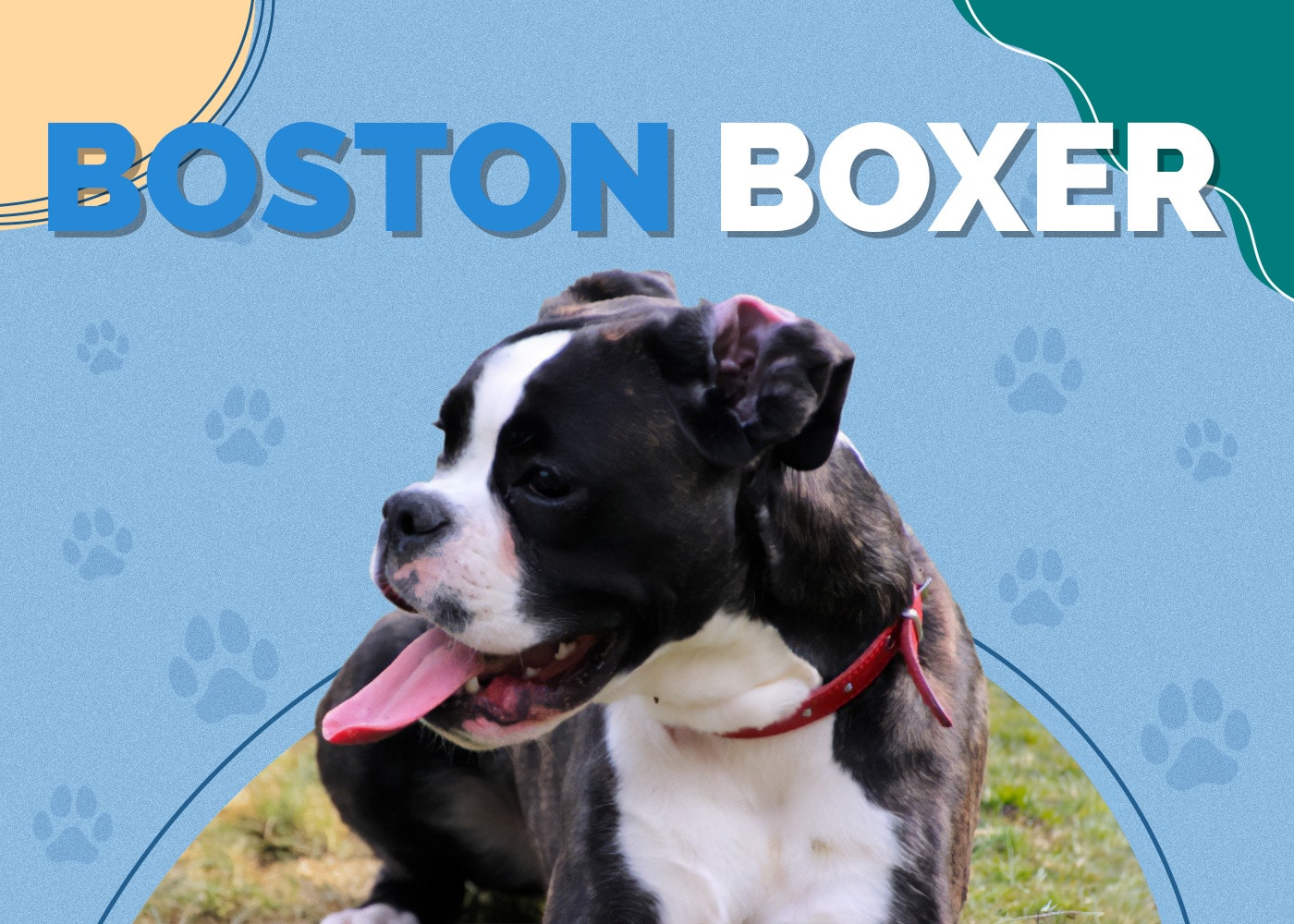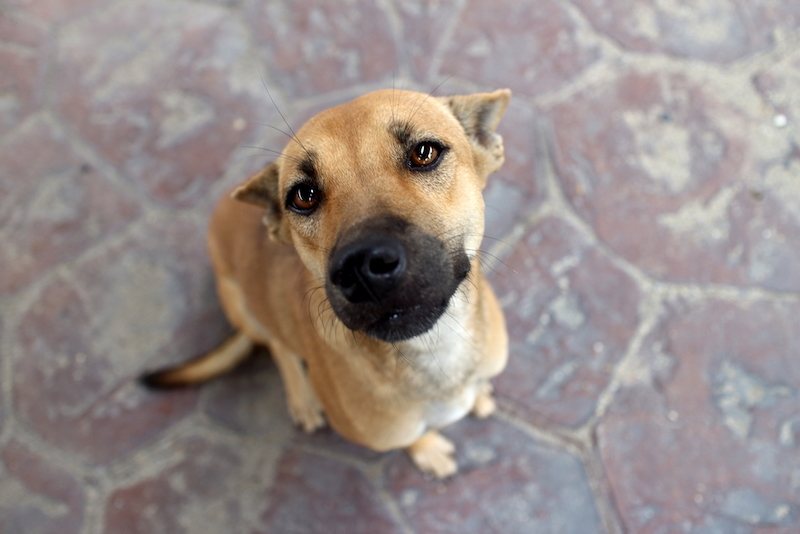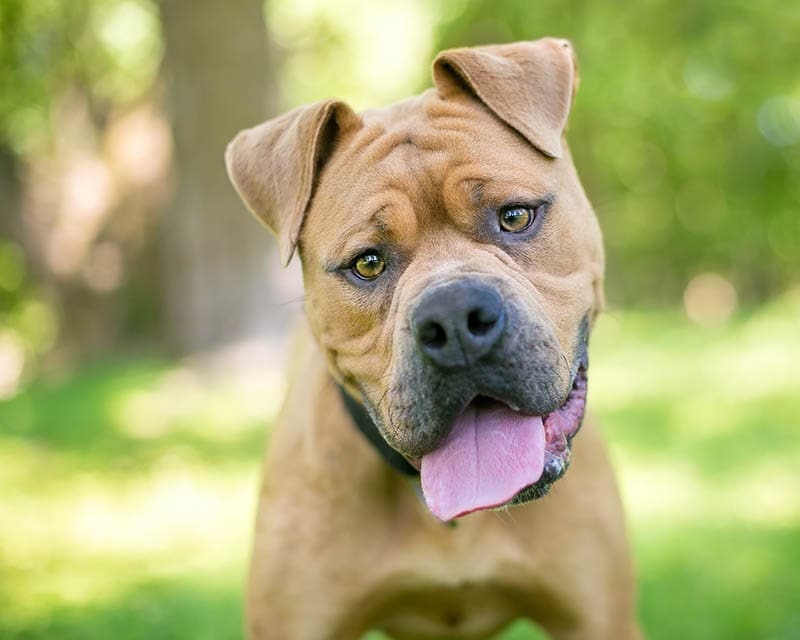Collie Dog Breed Info: Pictures, Characteristics & Facts

Updated on
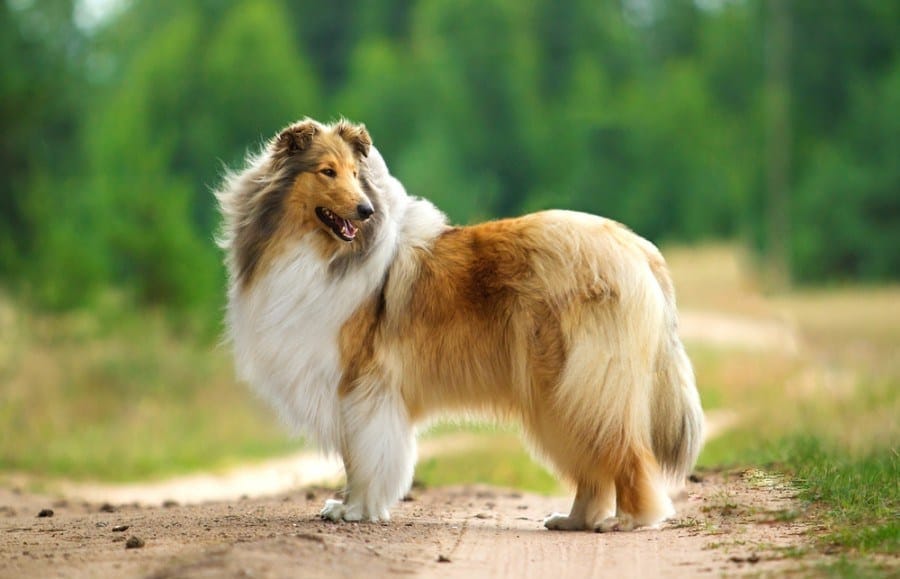
| Height: | 22 – 26 inches |
| Weight: | 50 – 75 pounds |
| Lifespan: | 12 – 14 years |
| Colors: | Black, sable, blue |
| Suitable for: | Active families, those looking for a well-mannered working dog |
| Temperament: | Intelligent, sensitive, loyal, energetic, calm, obedient |
The quintessential working dog, the Collie has been employed on just about every continent on the planet. These dogs have tireless work ethics, and they love nothing more than to please their humans.
There are multiple different types of Collie, but they’re all energetic, loving, and loyal. They may be too much dog for owners who prefer to spend their free time lounging around the house, but if you can keep up with them, they’ll make your life fun and exciting.
If you want to learn more about these wonderful pups, our guide below will fill you in on everything you need to know.
 Collie Puppies
Collie Puppies
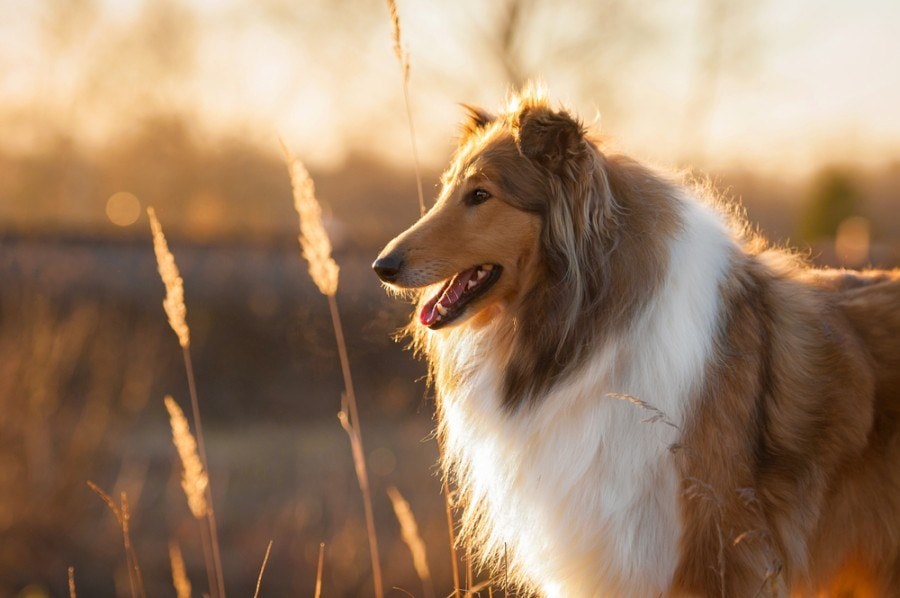
If you’ve never felt your heart start to melt, then we can only assume that you’ve never seen a Collie puppy. These little furballs are constantly in motion, and it’s truly amazing to watch them learn the skills that they’ll utilize later in life. For example, they actually start herding as puppies — and it’s just as adorable as it sounds.
However, they also have a bad habit of nipping people and animals as they try to herd them. You need to break them of this habit as soon as you can because it’s definitely not something you want lingering into adulthood. They’ll get into trouble at every opportunity, so it’s best not to leave them unsupervised. You’ll need to burn off all their energy too unless you’re secretly hoping to buy an entirely new shoe collection.
These dogs are smart enough to start being trained as puppies, and they enjoy the process enough that they’re more likely to pay attention than many similarly-aged dogs. They’ll still give you fits every now and then, though.
3 Little-Known Facts About the Collie
1. There Are Two Different Types of Coat
There are two distinct Collie coats: rough and smooth. Rough Collies have a coarse outer coat over a soft, furry undercoat, whereas smooth Collies lack the coarse layer.
It’s not uncommon for there to be both rough and smooth Collies in the same litter. One isn’t better than the other, but smooth Collies don’t shed quite as much.
2. Collies and Border Collies Aren’t the Same Thing
There’s a bit of semantic confusion that often occurs here. There’s an entire group of dogs known as “Collies;” these include the Border Collie, Shetland Sheepdog, and Bearded Collie.
However, there’s also a breed known as the Collie (or “Standard” Collie). These dogs are usually black and white, whereas the other breeds have a variety of other colors thrown in.
3. They’re Built to Herd
Some dogs enjoy herding; Collies were made for it.
Their entire skeletal structure is designed to herd, in fact. They have a space between their shoulder blades that allows them to lower their up er torso to the ground while keeping their rear at a normal position.
They can hold this pose while moving, allowing them to stay close to the heels of the animals they’re supposed to be safeguarding.
A Brief History of the Collie
The breed is believed to have originated in the Highland Regions of Scotland several hundred years ago. There wasn’t much of a breed standard back then, as their owners were more concerned with their ability to herd than they were their appearance.
In fact, some think that the name “Collie” comes from the Scots word for “coal,” as the original Collies were all-black. Others say that it’s a derivation of the German word “kuli,” which means “worker,” and still others think it comes from a Gaelic word that means “useful.”
Regardless of the etymology behind the name, the breed became famous in the 1860s when the British Queen Victoria discovered the breed and quickly fell in love. Collies soon became in demand among the wealthy elite in England, and they were one of the first breeds to be officially recognized by the Westminster Kennel Club.
They had another influential fan who introduced them to the United States: J.P. Morgan. The American financier popularized the breed stateside, and the American Kennel Club recognized them not long after Westminster did.
Of course, it was Hollywood that made them truly famous – “Lassie” showed the world how useful these dogs could be, and they’ve made countless other appearances on both the big and small screen. That’s no surprise, as their keen intelligence and tireless work ethic make them wonderful co-stars.
Temperament & Intelligence of the Collie 🧠
While their Border Collie cousins have been awarded the title of “World’s Smartest Dogs,” Standard Collies aren’t far behind. Many experts rank them in the top 20, which is quite impressive in its own right.
They have incredible problem-solving skills, which makes them easy to train; it also makes them fantastic guide or rescue dogs. They can figure out just about anything that you could possibly ask of them.
However, it’s a different kind of intelligence that sets them apart: emotional intelligence. These dogs can anticipate needs, and they have a knack for knowing exactly what you need at any given moment. Regardless of whether you crave a hug or just goofy companionship, your Collie will likely be several steps ahead of you.
They’re incredibly loyal and loving, and they’re prone to being overprotective of their family members (especially kids). This makes them excellent watch dogs, as they’ll bark at strangers but rarely show aggression.
Their natural suspicion of strangers can help protect your family, but it can also make it difficult to have houseguests over. As a result, you should train and socialize your Collie as thoroughly as possible.

Are These Dogs Good for Families? 🏡
Collies make fantastic family pets, as they love nothing more than to spend time with their humans.
They’re especially fond of small children, and they’ll look after them as if they’re their own. This means being unbelievably patient with them, but it can also mean shepherding them away from danger.
You may need to curb their natural herding instincts, at least as far as your kids are concerned. Otherwise, the Collie may nip at or block the child as they try to move.
They sometimes latch onto a single member of the family at the expense of everyone else. This makes it difficult for the other members to bond with the dog or get them to follow commands. As a result, you should make an effort to include the entire family in the training and socialization of your pet.
Their natural suspicion of strangers can make it difficult to have company over, as they may stand and bark at any new faces (especially if they make a move toward your kids). However, if properly trained and socialized, they can be loving and accepting of strangers.
Does This Breed Get Along With Other Pets? 🐶 😽
Collies are workaholics; that means they often don’t have the patience for other dogs who simply want to play all the time.
Also, they’ve been bred to protect livestock from threats, which could include strange dogs. This makes them extremely wary of other pooches.
Will this translate to aggression? Not necessarily, but it’s unlikely that your Collie will be best friends with any other animal. There’s a good chance that they’ll just stand and bark at any other dog they see.
As a result, we’d recommend not bringing a Collie into a multi-dog home.
As far as cats and other pets are concerned, Collies are usually tolerant of them. However, they can’t fully suppress their herding instincts, so they may try to force the other pets to live by their rules. This can stress out your other animals, and they may lash out at the dog as a result.
Is It Possible to Have a Collie in an Apartment?
While it’s certainly possible to keep a Collie in an apartment, it’s generally advisable to have a home with a big backyard before you add one of these dogs to your pack.
Space is obviously an issue, as these dogs need plenty of room to run around. You may be able to get away with a couple of trips to the park every day, but it will be difficult for you to give them all the exercise they need.
Since they’re naturally suspicious of strangers, they may not like sharing a building with a bunch of unknown people. They may try to police your neighbors’ comings and goings from your window.
Also, while they’re not an overly vocal breed, they will bark — especially at strangers. You can see how this might become a problem in a crowded apartment building.
That’s not to say it’s impossible to keep one in an apartment, but you’ll have your work cut out for you. Unless you have plenty of free time on your hands (not to mention understanding neighbors), you might be better off picking another breed to adopt.
 Things to Know When Owning a Collie
Things to Know When Owning a Collie
Collies are wonderful dogs, but they can be high-maintenance. You should know what you’re getting into before you bring one home, so we’ve listed pertinent information below.
Food & Diet Requirements 🦴
Given how energetic these dogs are, they need a kibble that can provide them with all the fuel they need. We recommend one that’s extremely high in protein, as it will give your dog long-lasting energy without fattening them up along the way.
Watch out for ingredients like corn, wheat, soy, and animal by-products; as a general rule, higher-end foods won’t have any of these inside.
Instead, look for premium foods like lean meat, cranberries, spinach, broccoli, and the like. If you know a food’s healthy for you, it’ll probably be healthy for your dog too.
Just because Collies naturally have big brains doesn’t mean that you don’t need to nourish them. Try to give your dog as many omega fatty acids as possible, especially while they’re puppies. Foods high in these antioxidants include fish, flaxseed, and chia seeds.
The dogs can be prone to hip dysplasia later in life, so you might want to add a glucosamine supplement to their diet while they’re young. It’s no guarantee that they won’t have joint problems later on, but it can help mitigate the damage.
Exercise 🐕
Collies were bred to herd livestock all day long alongside their masters. This means they need a ton of exercise — and they’d prefer to get it with you.
You’re probably not going to be able to work these dogs too much, so don’t worry about overdoing it. Make sure they get at least an hour of strenuous activity per day, but that’s the absolute minimum — more is better.
Their keen intellect and natural agility make them fantastic at agility training, and Collies often dominate competitions. You don’t have to make a career out of it, but setting up an obstacle course in your backyard may not be a bad idea.
They love to take orders and have jobs to do, so daily obedience training is a must. Not only will this make them better-behaved, but it will also make them feel like they’re carrying their weight around the house, which is good for their mental health.
If you don’t give your Collie enough exercise, it will either become depressed or destructive — or both. If you don’t think you can give one of these dogs all the stimulation they need, you’re better off bringing home a different breed.

Training 🦮
Training will seem like a full-time job with these animals, but that’s not because they’re disobedient. Quite the opposite, in fact; they just love to learn and make you happy.
You should start training and socializing them from the day you bring them home. They can quickly soak up any commands you give them, so don’t be afraid to challenge them.
They can get bored quickly, so it’s important to keep things fresh. However, unlike many other precocious dogs, they’re often too polite to ignore you when you’ve become tedious.
They live to please you, which can make them quite sensitive. Don’t be harsh or punitive in your training; instead, rely heavily on positive reinforcement. These dogs will run through walls for a bit of praise from their humans.
If not properly socialized, they can become reserved or aggressive around strangers. If your dog is already showing signs of these behaviors, you may want to consult a professional for techniques on correcting it.
Grooming ✂️
Regardless of their coat type, your Collie will need to be brushed at least twice a week to reduce shedding. However, a rough Collie will need even more than that, and you’ll also need to check their coats for burs and other entanglements after they’ve been outside.
They don’t need to be bathed often. You can probably wait until they’re visibly dirty to throw them in the tub.
Their ears need to be cleaned at least once a week, and their teeth should be brushed daily, if possible.
You can trim their nails on an as-needed basis. However, these dogs are so active that they often wear their claws down naturally, so you may not need to trim them at all.
- See Also: 11 Best Dry Dog Shampoos
Health and Conditions ❤️
Collies are a fairly healthy breed, especially if they stay in shape. That doesn’t mean they don’t have their fair share of health problems, though.
The breed often suffers from a genetic defect in the MDR1 gene. This makes them extremely sensitive to a variety of drugs, so be aware of that when taking them to the vet. Many breeders screen for this mutation, but it’s not guaranteed.
Puppies also occasionally suffer from a stem cell disorder known as “Grey Collie Syndrome.” Affected puppies are born with a silvery-grey coat; unfortunately, these dogs rarely live past six months of age.
Beyond that, here are a few things to be on the lookout for:
- Nasal solar dermatitis
- Allergies
- Skin issues
- Dermatomyositis
- Hip dysplasia
- Elbow dysplasia
- Collie eye anomaly
- Progressive retinal atrophy
 Male vs. Female
Male vs. Female
Males are typically larger with a sturdier frame. They also retain more hair during heavy shedding seasons (when they blow their coats), giving them a fuller appearance.
Many of these superficial differences will be affected by whether the dog has been fixed. If not, expect males to have broader heads, deeper chests, and furrier tails. The idea is to draw attention and make themselves look powerful.
Because the males are generally more powerfully built, females tend to be more agile. They’re lighter on their feet and have finer characteristics. This can make them better-suited for agility competitions.
As a general rule, males are more emotionally needy than females. They’ll nudge you with their heads or put themselves in your personal bubble when they need attention; females often wait for you to come to them.
Males are often easier to train. This is partially because they tend to be more food-motivated, but females also have a strong stubborn streak. Either gender will likely be easier to train than dogs of other breeds, though.
 Final Thoughts
Final Thoughts
There aren’t many dogs like Collies. Incredibly intelligent and hard-working, these beautiful pups will spend their entire lives trying to please you — and trying to herd everything that comes across their path.
While they’re easy to train, they can be challenging to own, especially for those who don’t like to spend hours every day exercising their dogs. They can also be standoffish toward strangers, but they’re fiercely devoted to (and protective of) their families.
If you think you have the time and energy to devote to one of these dogs, you’ll have a pet that wants nothing more than to make you happy.
Related Read:
Featured Image Credit: Grigorita Ko, Shutterstock
 Collie Puppies
Collie Puppies
 Things to Know When Owning a Collie
Things to Know When Owning a Collie Male vs. Female
Male vs. Female Final Thoughts
Final Thoughts